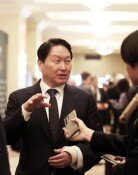[Op-Ed] China Boom Spreading in US
[Op-Ed] China Boom Spreading in US
Posted January. 25, 2010 08:52,
When Dr. Jeong Jong-ho, a professor of Chinese studies at Seoul National University, was working as a visiting scholar at Harvard University last year, he said he could feel the China boom in the U.S. At Harvard alone, there were some 250 lectures on China, including its language, and about half of social science seminars dealt with Chinese issues. A four-day seminar hosted by Harvards Fairbank Center to mark the 60th anniversary of the Peoples Republic of China took a thorough look on Chinese politics, economy, military and culture. Jeong said he was surprised at the large number of students and experts swarming to China-related lectures and events.
The China boom is not limited to American academia. U.S. think tanks are scrambling to hire China experts and set up Chinese studies departments. The John L. Thornton China Center at the Brookings Institution in Washington, D.C., has six researchers specializing in Sino-U.S. relations and Chinese studies. The conservative Heritage Foundation, which came up with the theory of the China threat, is now holding seminars stressing Sino-U.S. cooperation. Just as Chinese products are overflowing in the U.S. market, the China craze is spreading through think tanks and universities.
Public schools in the U.S. are no less interested in China. According to the results of a study by the Center for Applied Linguistics, some 1,600 American public schools offered courses in the Chinese language in 2008, a huge leap from just 300 in 1998. Chinese is expected to emerge as the third most popular foreign language in American public schools after Spanish and French. Chinas policy of exporting its language has also helped fuel the China boom in the U.S. Hanban, which organizes the Chinese Proficiency Test, has sent some 300 Chinese-language teachers to the U.S. since 2006. Hanban covers the annual salary of each teacher of 13,000 U.S. dollars. It also invites principals from American schools and other education officials to raise American interest in China.
The China boom in the U.S. foretells significant changes. Increased communication between both countries is expected to help solidify the era of Chimerica, a term referring to the two countries leadership of the world order. For Korea, the U.S. is an ally and China a close neighbor. Changes in the two countries relations will have a major impact on Koreas future. Korea must closely watch the China boom in the U.S. not as a fad but as a giant wave accelerating rearrangement of the world order.
Editorial Writer Bhang Hyeong-nam (hnbhang@donga.com)







